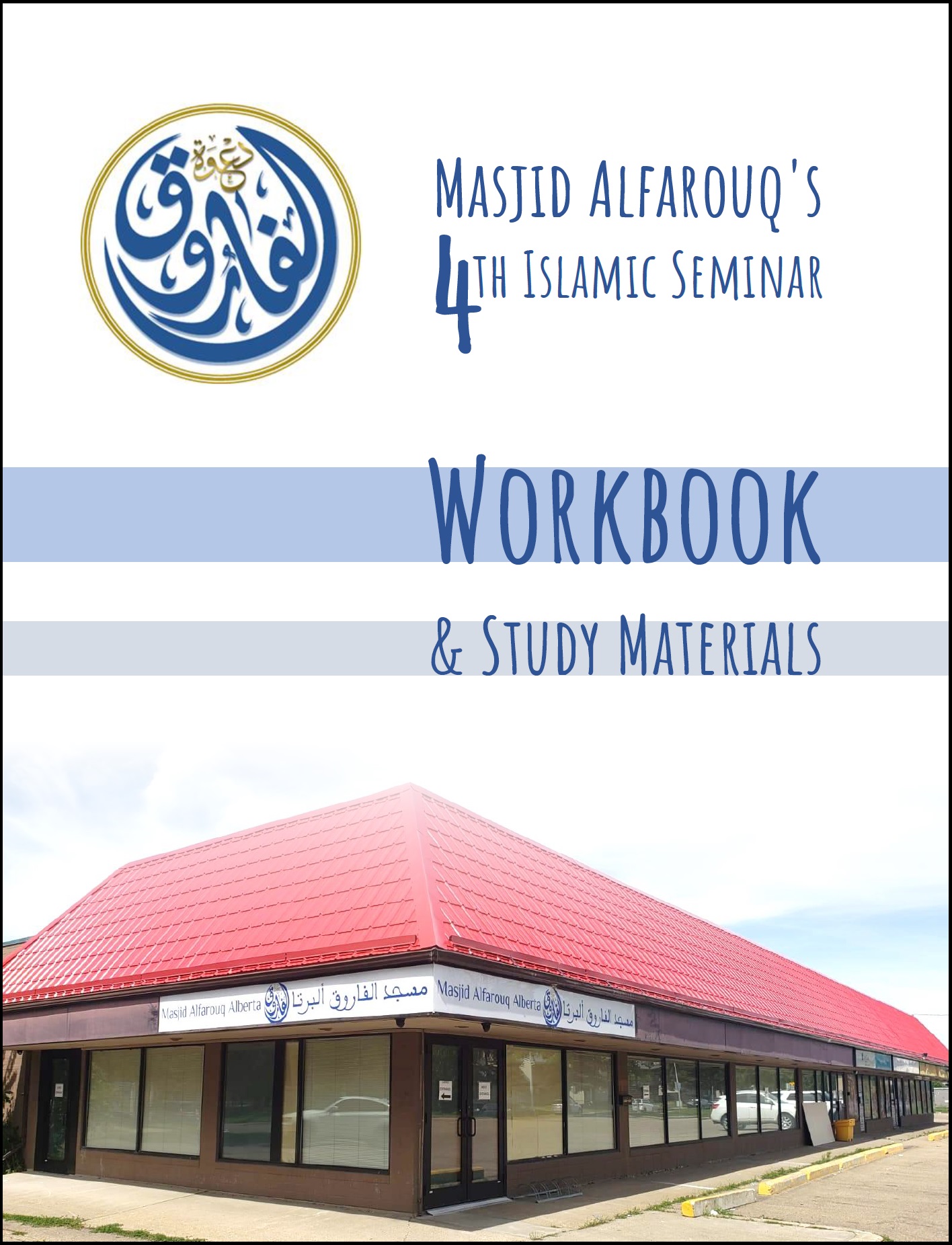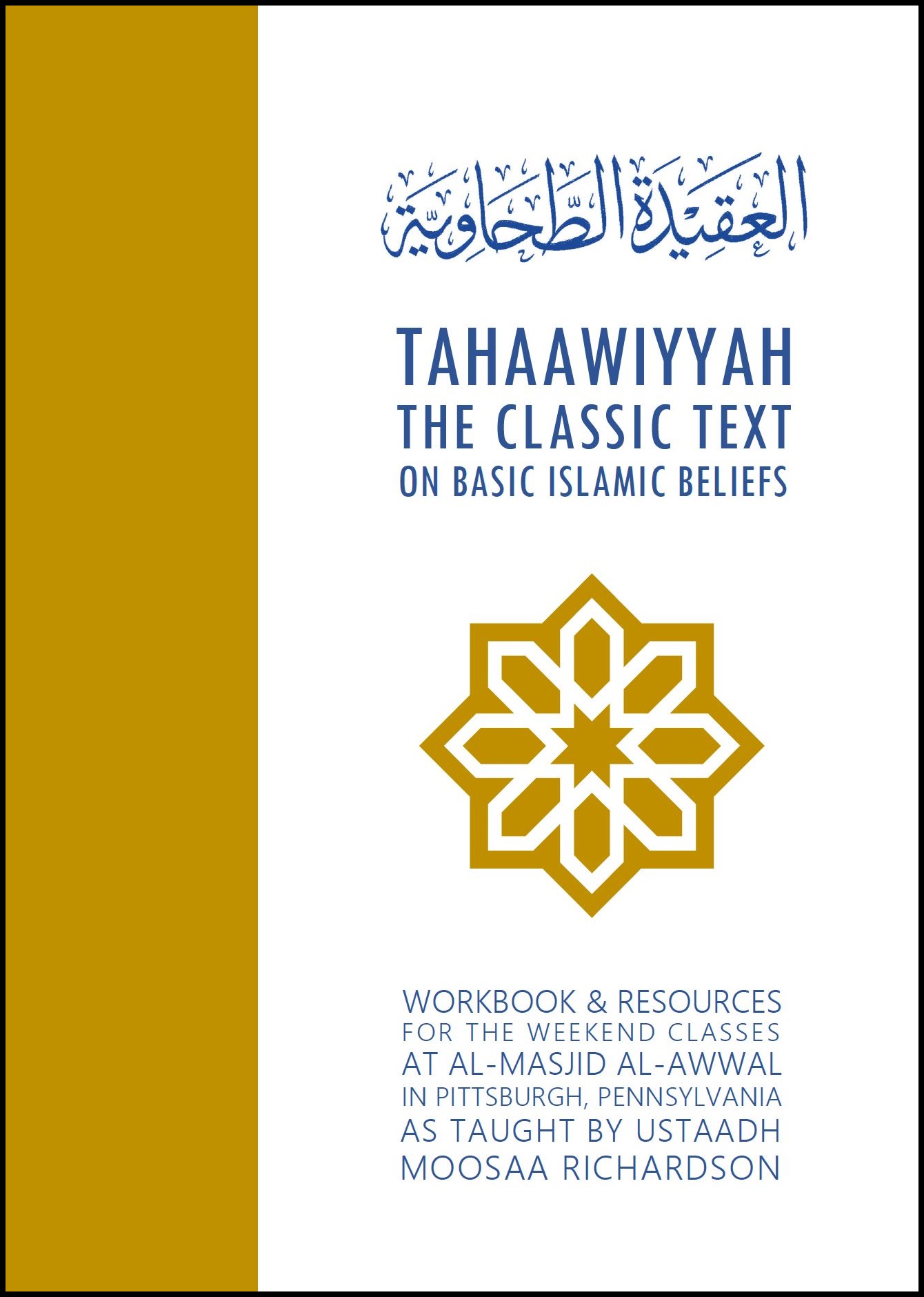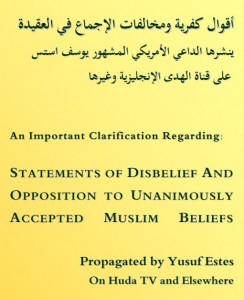In the Name of Allah, the Most Gracious, the Ever Merciful…
QUICK LINKS TO THE NEW WORKBOOK:*
Print (Paperback) Version on Amazon: USA | UK | CAN | AUS
PDF Versions: PDF Workbook | English Text (Mobile) | Arabic Text (Mobile)
*When we recommend any products available on Amazon, as Amazon Associates we may benefit from qualifying purchases when you follow our links from Bakkah.net. This helps us offset the costs of maintaining the website, and we do appreciate your understanding and support!
Here you will find helpful resources and guidance, by Allah’s Permission, connected to the seminar at Masjid Alfarouq in Edmonton, Alberta (Canada), which took place starting on Muharram 29, 1445 (Aug.16-20, 2023), wal-hamdu lillaah, along with special information about the official seminar workbook and some exclusive images of its content.

In anticipation of the seminar, Ustaadh Moosaa Richardson stated:
Upon visiting our brothers in Islam and Sunnah at Masjid Alfarouq in Edmonton, Alberta (Canada) earlier this year, based on the advice of Shaykh Abu Muhammad al-Maghribi (may Allah preserve him), I was delighted to find such beautiful cooperation at an emerging community upon Salafiyyah there. May Allah bless them and increase them in good. Their good efforts to learn and host special events for the benefit of their community and the Muslims of Edmonton at large are exemplary and deserving of our support…
This upcoming fourth seminar, scheduled for the end of Muharram 1445 (August 16-20, 2023), in shaa’ Allah, is another five-day event, similar to the last one. This time, Shaykh Abu Muhammad will be broadening the focus of family matters to include more practical advice and guidance for parents and children, siblings, as well as spouses, in shaa’ Allah. I will continue sharing and explaining verses from the same poetry on Islamic Legal Maxims. After considering that a significant number of the local congregants grew up in communities and households where the Maalikee math-hab is taught, I thought to explain a small text in basic Islamic Creed by an exemplary Maalikee scholar of old, al-Imaam Ibn Abee Zayd al-Qayrawaanee (may Allah have Mercy on him).



